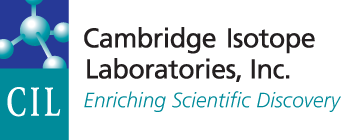Lipidomics
Fatty acids and lipids are important biological compounds that are essential to the regulation and control of cellular functions and metabolic pathways. These biomolecules are also tied to the energetic balance of an organism. Their qualitative/quantitative analysis has emerged in lipidomics research to better understand their underlying pathophysiology, as well as to identify new biomarkers or diagnose existing ones. It is also used to assess pathway activities.
To aid such research initiatives, CIL offers an array of individual standards and multi-component mixes. The fatty acid and lipid standards are available in their neat and/or solution form. The analytes span a breadth of fatty acid (includes saturated and unsaturated small, medium, and long chain) and lipid (e.g., glycerolipids, lysophospholipids, sphingolipids) classes, as well as biochemical pathways (e.g., fatty acid oxidation, ketone body synthesis, lipolysis). The dried-down mixes are uniformly labeled and available in different forms (i.e., free acid, methyl ester).
Lipidomics Standards
CIL offers a diverse library of stable isotope-labeled and unlabeled fatty acids/lipids for lipidomics research. These are available in various labeling patterns (i.e., uniform, partial), forms (i.e., free acid, salt, ester), and material grades (i.e., research, microbiological/pyrogen tested – MPT).
Lipidomics Mixtures and Kits
CIL offers a number of multi-component mixtures for lipidomics research. The standards in the mixes are uniformly (e.g., U-13C mixed fatty acids) or partially (e.g., lysophosphatidylcholine or LysoPC mix) labeled and are available in research and/or microbiological/pyrogen tested (MPT) grades.


 Deutsch (Deutschland)
Deutsch (Deutschland) Español (España)
Español (España) Français (France)
Français (France) 中文(中国)
中文(中国)